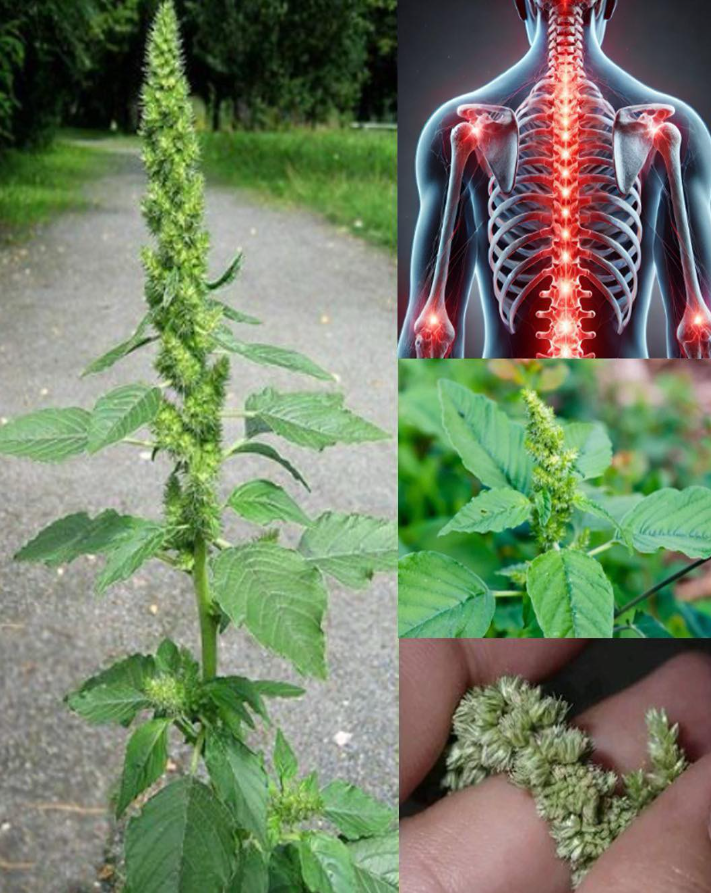Pigweed, also known as Amaranthus retroflexus, is commonly regarded as a nuisance weed. However, this tough plant is not only hardy, but it also has several health benefits. Pigweed is native to the Americas and has been utilised in traditional medicine and cuisine for ages. Let’s look at the numerous health benefits of pigweed and why you should consider including it in your diet.
A Nutritional powerhouse
Pigweed contains a range of nutrients, making it an excellent supplement to any diet. Here are some of the main nutrients found in pigweed:
- Vitamins: Pigweed is a good source of vitamins A, C, and K. Vitamin A is essential for vision and immune function, vitamin C is a powerful antioxidant, and vitamin K is important for blood clotting and bone health.
- Minerals: It contains essential minerals such as calcium, iron, magnesium, and potassium, which are crucial for maintaining overall health.
- Protein: Pigweed leaves contain high-quality protein, including essential amino acids that the body cannot produce on its own.
- Fiber: The plant is also a good source of dietary fiber, which aids in digestion and helps maintain healthy blood sugar levels.
The Fantastic Health Benefits of Pigweed
1. High in Antioxidants
Pigweed is high in antioxidants, which help fight oxidative stress in the body. Antioxidants neutralise free radicals, which lowers the risk of chronic diseases like heart disease, diabetes, and cancer. The high vitamin C concentration of pigweed contributes greatly to its antioxidant activity.
2. Promotes eye health
Pigweed contains vitamin A, which is essential for preserving clear vision. It protects the eye’s surface (cornea) and has a role in preventing age-related macular degeneration, the primary cause of vision loss in older persons.
3. Boosts the immune system
Pigweed’s high vitamin C concentration promotes a healthy immune system by increasing white blood cell formation and acting as a barrier to infection. Regular ingestion can help to minimise the occurrence and severity of common ailments such as colds and flu.
4. Promotes bone health
Pigweed contains vitamin K and calcium, both of which help to strengthen bones and teeth. Vitamin K is essential for bone metabolism and calcium level management, which helps to avoid osteoporosis and fractures.
5. Aids in digestion
Pigweed contains dietary fibre, which improves healthy digestion by adding bulk to the stool, allowing for regular bowel movements, and reducing constipation. Fibre also promotes a healthy gut microbiome, which is critical to general digestive health.
6. Helps with detoxification
Pigweed has long been used for its detoxifying effects. The plant’s nutrients promote liver function and aid in the elimination of toxins from the body, which contributes to general health.
7. Regulates blood sugar levels
Pigweed has fibre, which helps manage blood sugar levels by decreasing sugar absorption into the bloodstream. This can be especially advantageous for people who already have diabetes or are at risk of getting it.
How to Incorporate Pigweed into Your Diet
Pigweed can be used in various culinary applications, similar to how you might use spinach or other leafy greens. Here are some ideas:
- Salads: Add fresh pigweed leaves to salads for a nutritious boost.
- Smoothies: Blend pigweed leaves into smoothies for an extra dose of vitamins and minerals.
- Sautéed Greens: Sauté pigweed leaves with garlic and olive oil for a healthy side dish.
- Soups and Stews: Incorporate pigweed into soups and stews to enhance their nutritional value.
- Herbal Teas: Dried pigweed leaves can be used to make a detoxifying herbal tea.
Pigweed (Amaranthus retroflexus) is often considered a weed, but its outstanding nutritional profile and health advantages make it an important addition to your diet. Pigweed is a natural and healthy method to improve overall health by increasing immune function and eye health, as well as aiding digestion and managing blood sugar levels. So, the next time you see this plant, remember that it’s more than just a garden weed; it’s a nutrient powerhouse just waiting to be used.
After reading this text you can also read about: How To Grow Baby Cucumbers at Home in Containers



